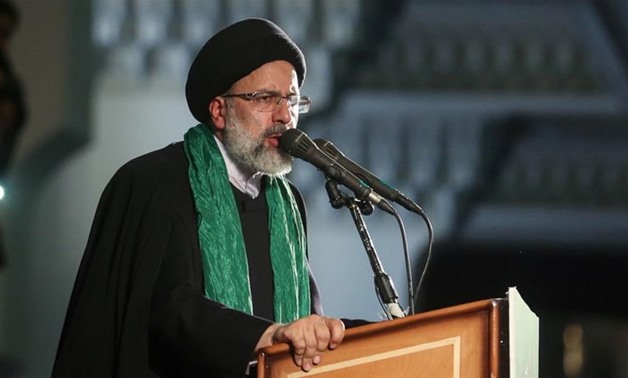
Former presidential candidate Ebrahim Raisi replaced Ayatollah Sadeq Amoli Larijani as head of the country's judiciary - (Reuters)
CAIRO – 13 March 2019: Controversial Iranian hard-line cleric Ebrahim Raisi may become the incoming Iran’s Supreme Leader as a successor to Ayatollah Ali Khamenei.
Less than a week after he was appointed head of the judiciary by Khamenei, Raisi was also appointed deputy chief of the country's Assembly of Experts, the clerical body responsible for choosing the country's Supreme Leader.
Raisi succeeded Ayatollah Sadeq Amoli Larijani, another potential candidate for the supreme leader post, who ran for the position of deputy chief of the Assembly of Experts but failed and is accused by rights groups of condoning widespread violations of the rights of political detainees.
It is pertinent to mention that Raisi has deep connections with the Islamic Revolutionary Guards Corps (IRGC). He is well respected thanks to his conservative views.
Raisi, Khamenei's protégé, is a strong candidate to succeed 79-year-old Khamenei, who is believed to have prostate cancer.
Raisi joined Iran's judiciary in 1981 as prosecutor in the city of Karaj and was promoted to deputy prosecutor general in 1985. In 1988, he played a prominent role in the mass execution of thousands of political prisoners.
Born in 1960, Raisi attended the Qom seminary and went on to become a prosecutor in the early 1980s. In 1981, he was appointed the prosecutor of Karaj. Later on, he was also appointed as Prosecutor of Hamadan.
The Center for Human Rights in Iran said Raisi should be tried for crimes against humanity. As deputy prosecutor general of Tehran, Raisi participated in a so-called “death commission” that ordered the extrajudicial executions of thousands of political prisoners in 1988.
Reports said that a secret deal has allowed Raisi to rise to power while Hassan Rouhani will remain president. Raisi lost the presidential election in 2017 to Rohani.
Raisi reportedly visited the Israel-Lebanon border in January 2018 with a delegation of Hezbollah leaders and Revolutionary Guards officers, a sign of his growing stature within Iran’s hierarchy.
Comments
Leave a Comment